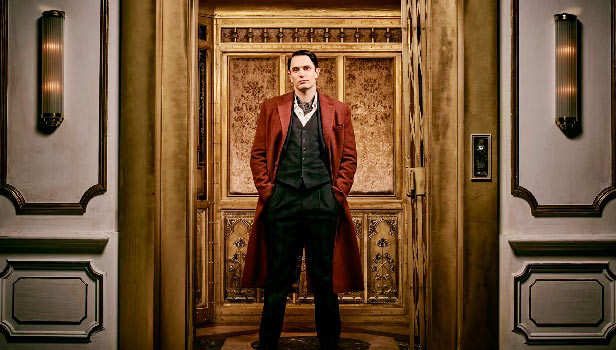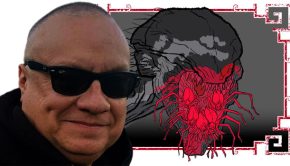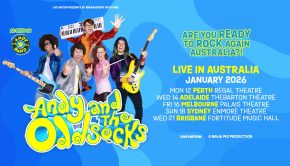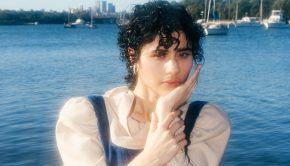THE CONTINENTAL: Colin Woodell Interview (Winston)
THE CONTINENTAL is the three-part event will explore the origin behind the iconic hotel-for-assassins centrepiece of the John Wick universe through the eyes and actions of a young Winston Scott, as he’s dragged into the Hell-scape of 1970’s New York City to face a past he thought he’d left behind. Winston charts a deadly course through the hotel’s mysterious underworld in a harrowing attempt to seize the hotel where he will eventually take his throne.
Introduce The Continental.
The Continental is a prequel story to the John Wick films, and if you have any familiarity with those films then you’ll know that this is a great introduction to the world. It’s about 30 to 40 years prior to when the films take place. And it’s a wonderful introduction to a lot of the characters, a lot of different aspects of the world, specifically the Continental Hotel. Plus, there’s a lot of little fun little easter eggs if you’ve seen the films that you’ll be able to recognize.
It’s really fortunate that we have all the producers from the films, so we have them overseeing and there is a really strict continuity to honour those and the style that they have in them. But what’s also wonderful is, this is the 70s, so it is going to be stylistically different. And there’s going to be little things that we can add to add flavour to our world.
What’s so cool about the world is that it takes place in New York City and you have all the elements of our reality, but then you incorporate this really unique criminal underworld that is looming over everyone. It’s got a dark spirit to it, but at the same time, there’s this unique, colorfulness that I find whenever I watch the films.
What’s unique about the fight scenes in this franchise?
There’s an elegance to the fights that I think was unique when this franchise came out. No one had really seen choreographed fights and gunfights in such a way, and I think it’s also a lot to do with Keanu [Reeves] and what he brings to John Wick. The characters are just so full of life – they’re not caricatures, they’re actual human beings. And I think they were really brilliant when they came out with it because they gave you little snippets of these people, but they didn’t give you too much, so it left you wanting more. When I first saw it, I was like, Wow, I’ve never seen fights like this in my life – I thought that was really special.
What’s really cool is we have 87eleven, the guys who were the stunt guys [on John Wick], whose performances really are mind-boggling. It’s like a dance, watching them work and what they can create. So we’re honouring the fight scenes a lot with them.
What made you sign up to play Winston?
You’re talking about a character who goes through so much in a 24-hour timespan, and any time you as an actor get to dive into that type of mindset and go through this type of emotional journey, while also getting to be a badass and clever, I mean, it was so many cool things for me that it was a no-brainer. And I’m glad, because I hadn’t watched Ian McShane’s version of Winston, so I thought, ‘Okay. I’m just going to approach this as my own and see if it fits.’
Were you inspired by Ian McShane’s performance?
I think because I hadn’t watched the films at first and because I hadn’t seen what he was doing, I just brought myself to it. And then after getting the offer and discussing the project, I watched all three films in a 24-hour span, which was a lot, but it was also super informative to see what he was doing and to pick up on his little nuances. Then it became a discussion of how much of what he’s doing do we want to replicate, and then in reality it made sense for us to be like, ‘Okay, it’s 30 to 40 years before we actually meet him. This is almost a completely different person.’ So I had a lot of liberty and it was nice to watch him, but then I put it aside and brought my own thing to it.
Did you train a lot for the part?
It’s funny, when I got there, I was so excited ’cause I was like, Yes, I finally get to train and become this action guy. And then I get here and I start reading the scripts and I’m like, ‘Well, there’s really not that much that I have to do.’ And if I do anything, I’m just dodging the line of fire and barely getting out of situations. I’m not really kicking ass. But I think that’s what’s cool about Winston – he’s just clever. He’s smart. That’s his power, it’s not kicking someone’s ass, it’s outsmarting them. So the training has been pretty funny because everyone in the cast is doing all this really extensive stuff and they’re talking about their body hurts and I’m like, ‘Yeah. Same. No, yeah, my neck is killing me right now.’ But in reality I’m actually not doing a lot.
So if he’s not a fighter, how would you characterise Winston?
Because of Winston’s upbringing, there’s definitely a scrappiness to him. And what we’re able to see with a lot of the flashbacks is that Winston was never the kind of guy who picked it up quickly, in terms of how to fight. But there was a need for survival. So stylistically what we’ve talked about is letting him be someone who’s able to get himself out of situations. He’ll always put up a good fight. He just won’t necessarily win that battle. But it’s so informative of who he is because he’s learned you either have to be the fighter or you have to be the brains. And that’s the destination that he’s chosen and it’s really useful for him and it’s what leads to him being so successful at what he does.
Tell us about where we meet Winston in the series?
You’re meeting Winston in London. He’s a seemingly successful businessman on the precipice of the biggest deal of his life, and you come to find out that he’s been living in London for about the last 15 years because he ran into some trouble with the law, with his older brother, Frankie, in New York City where he grew up. So he’s been living this life trying to prove a lot to himself. No family, no friends. So there is this lone wolf sort of thing that’s happening for him. And I think he’s looked at success as a means of happiness. And in reality, he’s kind of focused on the wrong things, but he knows that he doesn’t have the Ivy League education. He didn’t go to Oxford. He’s not from a wealthy family. So in order to be successful, he’s got to cut corners and do whatever it takes to get to where he wants to be.
So he’s a bit of a conman, but he’s also really present and knows that he has to be looking over his shoulder because his past might catch up with him.
Can you explain the gold coins to the audience? What do they mean in this world?
The coins themselves are a currency of sorts. You can actually, you know, purchase things with the coins, but it’s also really what’s more important about the coins and what they represent – they are this rite of passage. It’s why you’re able to stay at the Continental, if you have a coin. But this coin represents the status of the person that possesses it and you can imagine, based on what a coin is valued, how much the coin press actually means. Because if the coin press ends up in the wrong hands, then the person could mint as many coins as they want, they could flood the market and then all of the sudden the coins lose their value.
How does Winston evolve across the series?
It’s been really fun to play this guy because I get to see just how quickly things evolve and how when that happens, you don’t really have time to process. Because of this loneliness that he’s been living with in London, he’s put this pressure on himself to have success and he thinks it’s going to bring him happiness. Once he reconnects with his brother, he does partially realise, not fully yet, that what he’s been missing is family and love. So for this person to be motivated by one thing for so long and then for him to realise that he’s been living this lie, it’s a lot to process and for him he realises he’s got nothing to lose now at this point and he’s going to take matters into his own hands.
What was it like stepping into the shoes of the Winston and Charon friendship?
From the first encounter, it’s not like the bond is all of a sudden forged and these two are what we see in the films. When Winston approaches Charon, there’s definitely a lot of animosity. There’s a lot of anger, because of who Charon is aligned with, and therefore what Winston holds him responsible for. So it’s kind of loaded at first. But I think Winston’s really able to sympathise with the kid and see just how much this poor, young boy is like a mirror image of himself, brainwashed, doesn’t even know what world he’s involving himself in. And I think Winston’s always wished that someone had come in and saved him and his family.
I personally love the relationship between Ian McShane and Lance Reddick’s Winston and Charon. And I was just so excited to have that scene with Ayo and for us to be able to step into these pretty iconic roles and begin to develop our storyline and our chemistry. And I think that day on the bus where I’m trying to recruit him to join the cause, there was just this connection that begins to slowly evolve, and you can start to see the gears turning and the connection between the two men. That was a fun moment. And it was the first moment where I was like, ‘Okay. I’m Winston and you’re Charon. This is exciting.’







